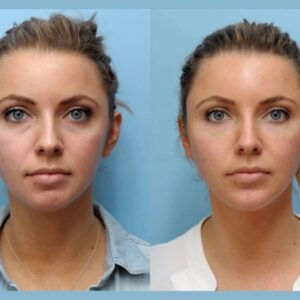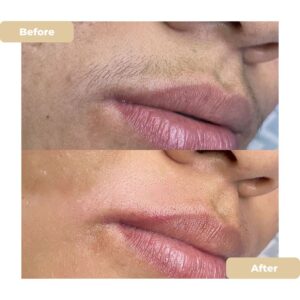1. Welcome—You’re Not Just Imagining This
When you become a mom, people expect you to feel pure joy. And maybe you do, sometimes. But if you’re sitting up late, heart racing, legs buzzing, staring at the baby while your mind races “what-if,” then that’s more than the “normal” new mom jitters. If you’re living in Miami and you’ve been searching for a “
Therapist Miami FL” or been Googling “postpartum anxiety Miami FL,” you’re in the right place. You’re not alone—and you’re absolutely not broken.
2. What Is Postpartum Anxiety (Beyond “Baby Blues”)
There’s the “baby blues” everyone talks about—sadness, crying, mood swings, usually fading in 1-2 weeks. But what about the right-after-birth fear that doesn’t leave? That’s closer to what experts call Postpartum Anxiety (PPA). Women may experience overwhelming worry, racing thoughts, difficulty focusing, physical symptoms like heart racing or nausea. It’s not just “not enjoying” motherhood—it’s a signal your brain and body are out of balance.

3. How Common in Miami—and Why the Location Matters
In a city like Miami—with sunshine, beaches, new mom groups but also high pressure: “look good, be strong, bounce back”—the expectation can reinforce shame. Nationwide stats show significant numbers: about 1 in 7 women may experience significant postpartum mood disorders. If you live in or around Miami, and you’re seeking a “Therapist Miami FL” term, you’re smart. Local support, local culture, local life stressors matter.
4. Signs It Might Be Postpartum Anxiety (Not Just Tired)
Here are real-world signals:
- Constant worry about your baby’s safety even though baby is fine.
- You can’t shut off the “what if” loop in your head; sometimes it’s physical: heart pounding, sweaty, unable to sit still.
- You’re exhausted but your brain won’t quiet; your sleep is broken even when baby sleeps.
- You feel disconnected from baby or partner; you’re doing everything but still feel guilty or inadequate.
- Maybe you’re avoiding people, hiding the truth because “we should be happy.” These are legit. Many therapists who specialize in postpartum disorders point out these patterns.
5. Why It Happened—and It’s Not Your Fault
Hormones change. Sleep shifts. Your identity changed overnight. It’s a huge transition. All that’s normal—but it can trigger anxiety for some. According to clinical resources: postpartum anxiety can result from hormonal shifts + emotional stress + lack of support. So if you’re thinking “why me?” a better question is “what’s influencing this?” It’s not a moral failing. It’s a reaction. And you can move through it.
6. What a Therapist in Miami FL Can Offer You
When you search for “Therapist Miami FL,” pick someone who understands perinatal mental health—not just generic anxiety. A therapist trained in postpartum anxiety will help you:
- Understand your experience (not minimise it)
- Process the change in your life (biggest life shift ever)
- Learn coping tools (not just “relax” but “how to calm the brain when it’s racing”)
- Deal with the relationship and self-expectation impacts.
In Miami, there are practices that specialise in this. For example, the team at a reproductive, fertility & postpartum specialized practice highlight that they help with “postpartum anxiety.” If the therapist you contact says “we just treat general stress,” you might want one a bit more specialized.
7. Local Context: Why Miami Works & What to Look For
Miami has unique stresses: maybe you moved here, maybe weather, maybe family not local, maybe partner working odd hours. These all add emotional weight. When choosing a “Therapist Miami FL,” check:
- Do they acknowledge postpartum mood and anxiety issues specifically?
- Do they offer flexible scheduling (new moms don’t always have predictable days)?
- Are they located centrally or offering tele-therapy? (That matters if getting out with baby is tough).
- Do they create a safe, non-judgmental space where you won’t feel “less than” for your anxiety?
These criteria matter because you want more than “help”—you want someone who gets this phase.
8. What Therapy Looks Like—and What You’ll Be Doing
Therapy doesn’t mean witch-doctor mode. It means: you meet someone who listens, asks good questions, helps you map what’s happening in your head and body, helps you try strategies. Some of what you might do:
- Chart your anxiety patterns (when it spikes, what triggers).
- Practice grounding, breathing, body regulation.
- Work on self-talk: “I’m safe,” “This will pass,” “I’m allowed to need help.”
- Skill up: coping with sleepless nights, partner issues, guilt, identity shift.
- Possibly work with partner or family so they understand what you’re going through (which helps).
It’s not “fix you in one session.” It’s a process. With a good therapist in Miami FL, you’ll feel steady progress.
9. Common Mis-Beliefs & Myths — Let’s Bust Them
- Myth: “If I loved my baby I wouldn’t feel like this.” Reality: Anxiety doesn’t mean you don’t love your baby. It often means you do.
- Myth: “This is just lack of willpower.” Reality: Your nervous system got hijacked. It’s not about being strong—it’s about retraining.
- Myth: “I’ll outgrow it on my own.” Reality: Some people do improve spontaneously—but many don’t. Early help reduces how long you suffer. Clinical guides emphasise treatment sooner rather than later.
- Myth: “Therapy is too expensive / too inconvenient for new mom.” Reality: Many therapists now offer sliding scale, tele-sessions, more flexible hours—especially in Miami.
10. Taking the First Step — Realistic Guidance
Here’s what you can
actually do:
- Search “Therapist Miami FL postpartum anxiety” and pick 2-3 whose bios mention moms/new parent anxiety.
- Book a consultation (many offer free or low cost first call). See how you feel with them.
- Meanwhile, start a simple daily check-in: one minute, ask yourself: “What’s the worry today? What’s one thing I can control?” Write it down.
- Build your support system: partner, friend, mom group. Tell someone “I’m dealing with anxiety.” Putting it into words helps.
- If you ever think you might harm yourself or baby—stop everything and seek emergency help. Don’t wait. Threads of postpartum anxiety can escalate.
- Commit to at least 6 sessions before giving up. Change takes time.
11. Why It’s Worth It — The Long View
You’re not just treating “symptoms” here. You’re reclaiming yourself. You’re establishing a foundation of wellness for yourself, your baby, your family. Maybe you’ll be in a stronger place when your next child comes—or when the big life changes hit (and they will). The goal isn’t “just survive motherhood,” it’s “live through it and feel like yourself again.” A therapist in Miami FL with postpartum anxiety expertise gives you a
gift: yourself, grounded.

12. Final Thoughts & Clear Action
If you’re reading this and you thought “that’s me,” don’t ignore the signal. The sooner you act, the less fog you’ll live under. It doesn’t mean perfection later—it means
progress. You deserve support. You deserve care. You deserve to wake up and feel more than just “barely making it.”
If you’re ready: Visit Miami Counseling & Wellness Corp. to start. Reach out, schedule a consult. One small step today can make a huge difference tomorrow.
FAQs: Therapist Miami FL & Postpartum Anxiety Miami FL
Q1: What’s the difference between postpartum anxiety and postpartum depression?
A: There’s overlap, sure. But
postpartum anxiety Miami FL(PPA) centres on worry, restlessness, physical anxieties (rapid heart, hot flashes, inability to sit still) while postpartum depression (PPD) tends toward sadness, low mood, numbness, disinterest. The infographic from ADAA says PPA affects up to about 10% of postpartum women.
Q2: How quickly should I see a therapist after birth if I suspect postpartum anxiety?
A: Sooner is better. If symptoms persist beyond a few weeks (or intensify), don’t wait. Even booking a consult within the first 3-4 months is smart. As one guide said: moderate to severe cases benefit from therapy + social support early on.
Q3: Can therapy completely cure postpartum anxiety?
A: “Cure” is a strong word. Therapy equips you, supports you, helps you respond differently. Many people recover to a baseline where they feel functional, present, connected. It’s realistic to aim for “feel like myself again” rather than “never feel anxious ever.”
Q4: What should I check when choosing a therapist in Miami, FL who knows postpartum anxiety?
A: Check:bio mentions postpartum/parenting change; they know perinatal mood & anxiety disorders; they’re flexible (tele-sessions, child-friendly times); you feel comfortable talking to them. Use consult to test.
Q5: Is medication always required for postpartum anxiety?
A: Not always. The approach depends on severity. Some therapists handle mild-moderate cases through therapy + support. Severe cases might involve medication. But don’t assume medication is mandatory; discuss options with your therapist. Resources support therapy and social support as first lines.





